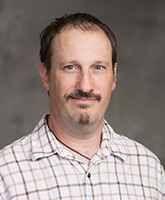非常抱歉,
你要访问的页面不存在,
非常抱歉,
你要访问的页面不存在,
非常抱歉,
你要访问的页面不存在,
验证码:

职称:Professor and Chair of Astronomy
所属学校:University of Michigan-Ann Arbor
所属院系:Astronomy
所属专业:Astronomy
联系方式:734.764.3441
Ted Bergin uses chemistry to probe the physics of star and planet formation and to trace the molecular origins of life. His current focus is the study of water and organics. He combines observation and theory to examine where and how molecules are formed, and how they interact with radiation. This aids in our understanding of chemistry but also increases the use of molecules as probes of the physics of star and planet formation. Bergin was part of a team that showed that ice on the comet Hartley 2 has the same chemical composition as our oceans, supporting the theory that Kuiper-belt comets may have delivered a significant portion of Earth’s water. He also helped detect vast quantities of cold water vapor in the outer reaches of the star TW Hydrae’s planet-forming disk, which further supports this theory.
Ted Bergin uses chemistry to probe the physics of star and planet formation and to trace the molecular origins of life. His current focus is the study of water and organics. He combines observation and theory to examine where and how molecules are formed, and how they interact with radiation. This aids in our understanding of chemistry but also increases the use of molecules as probes of the physics of star and planet formation. Bergin was part of a team that showed that ice on the comet Hartley 2 has the same chemical composition as our oceans, supporting the theory that Kuiper-belt comets may have delivered a significant portion of Earth’s water. He also helped detect vast quantities of cold water vapor in the outer reaches of the star TW Hydrae’s planet-forming disk, which further supports this theory.